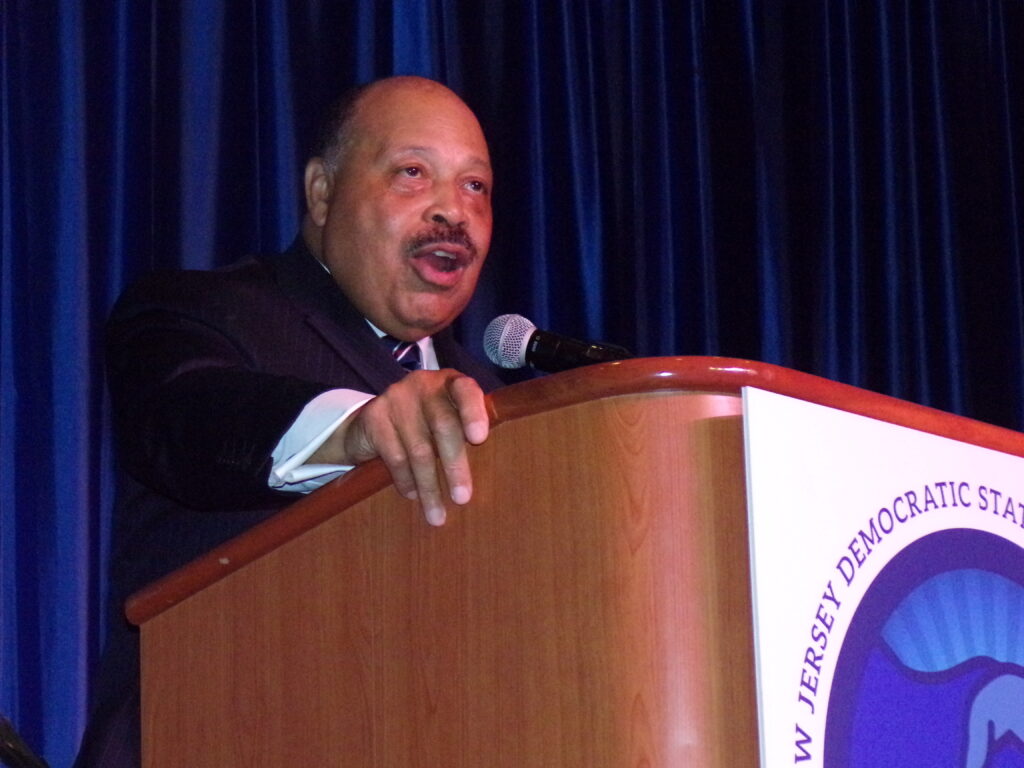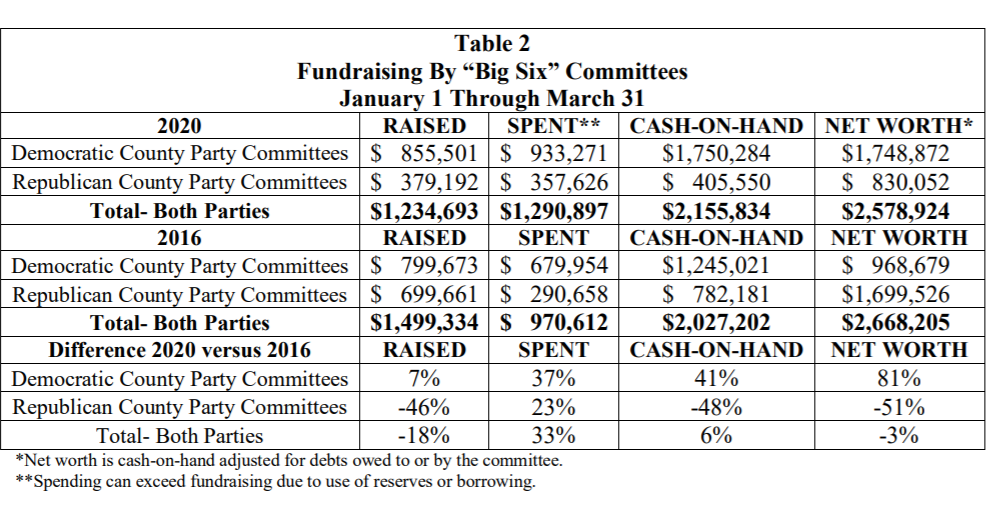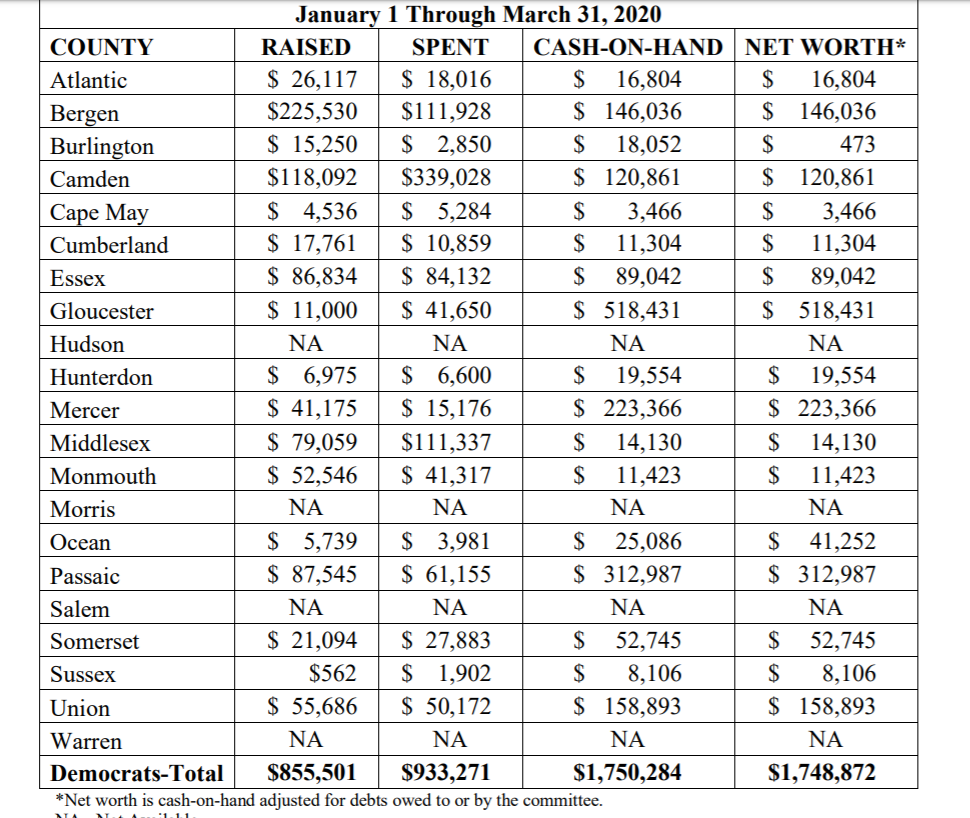ELEC: County Parties Holding Their Own Through COVID-19 Crisis

Fund-raising and spending by county political parties so far remains steady despite concern the COVID19 public health crisis may dampen all political fund-raising, according to reports filed with the New Jersey Election Law Enforcement Commission (ELEC).
During the three-month period ending March 31, 2020, county parties as a whole raised $1.2 million,
spent $1.3 million and reported $2.2 million in cash reserves.

Not adjusting for inflation, first quarter fund-raising totals for 2020 are higher than in seven of the last ten election years. County party officials reported higher totals only in 2016, 2018 and 2019.
“The COVID-19 pandemic has rocked all of our lives. It certainly poses new challenges to candidates,
parties and PACs trying to raise money for their continued operations,” said Jeff Brindle, ELEC’s Executive Director.
“While the first quarter reports of county parties are encouraging, they may not reflect the full impact of
state restrictions, which included bans on public gatherings like fund-raisers. Those limits didn’t take effect until a couple of weeks before the end of the reporting period,” said Brindle. “ELEC will remain vigilant for signs that the crisis is becoming a serious hindrance to election fund-raising.”
Compared to four years ago, Democratic party committees improved in all campaign finance categories.
Republicans spent more this year but reported less fund-raising and cash reserves than in 2016.

While county party fund-raising does not appear to be falling off a cliff, it has been relatively stagnant
during the past decade compared to the previous decade. For instance, county parties raised $2.9 million in the first quarter of 2003. That was their best first quarter receipts in two decades. The current figure of $1.2 million is 58 percent less.
“Even before the current virus crisis, party officials in New Jersey were facing long-term difficulties.
Tight state caps on donations by public contractors cut into their coffers beginning around 2005,” Brindle said.
“Another threat is competition from independent special interest groups, which used to send more checks to parties. Now they spend millions annually on New Jersey by bypassing parties and spending their money directly on campaigns,” according to Brindle.
To try to counter these trends, ELEC has recommended several legislative fixes, including lifting
contribution limits for party committees, ending a $300 limit on most public contractor contributions to parties, and imposing such that strict limit instead on contributions to continuing political action committees (PACs).
“Unless we move to reinvigorate parties and require more disclosure by independent spenders, election
financing will continue to become less transparent and less accountable,” Brindle said.
Six Democratic county party committees – Bergen, Camden, Gloucester, Mercer, Passaic, and Union reported a cash reserve above $100,000 for the quarter.
Table 3: Campaign Finance Activity of Democratic County Party Committees
 No Republican county party committees that have filed a report showed a cash reserve larger than
No Republican county party committees that have filed a report showed a cash reserve larger than
$100,000. Burlington reported a net worth of more than $100,000 since it is owed money by others.
Table 4: Campaign Finance Activity Of Republican County Party Committees January 1 Through March 31, 2020

The numbers in this analysis are based on reports filed by noon May 12, 2020. They have yet to be verified by ELEC staff, and should be considered preliminary.
Individual reports can be reviewed on ELEC’s website (www.elec.state.nj.us).





